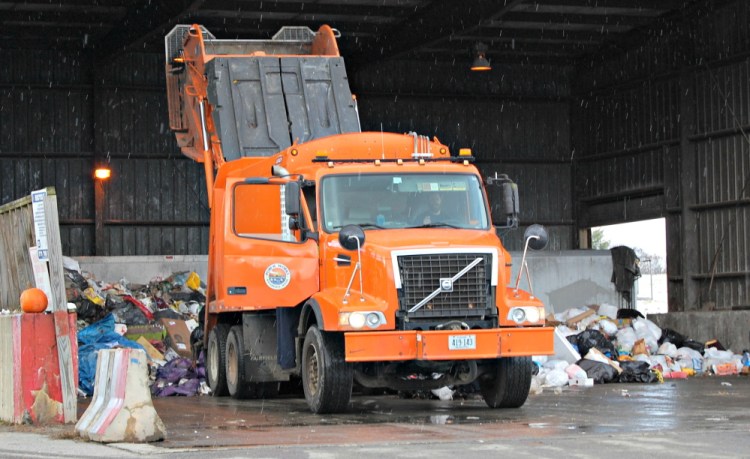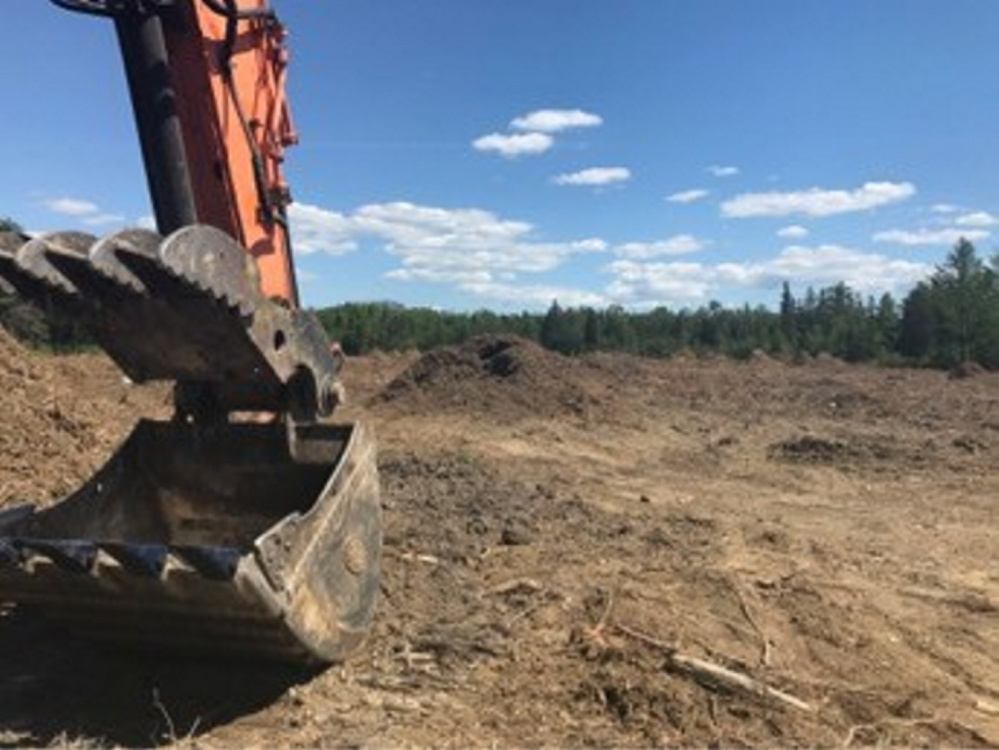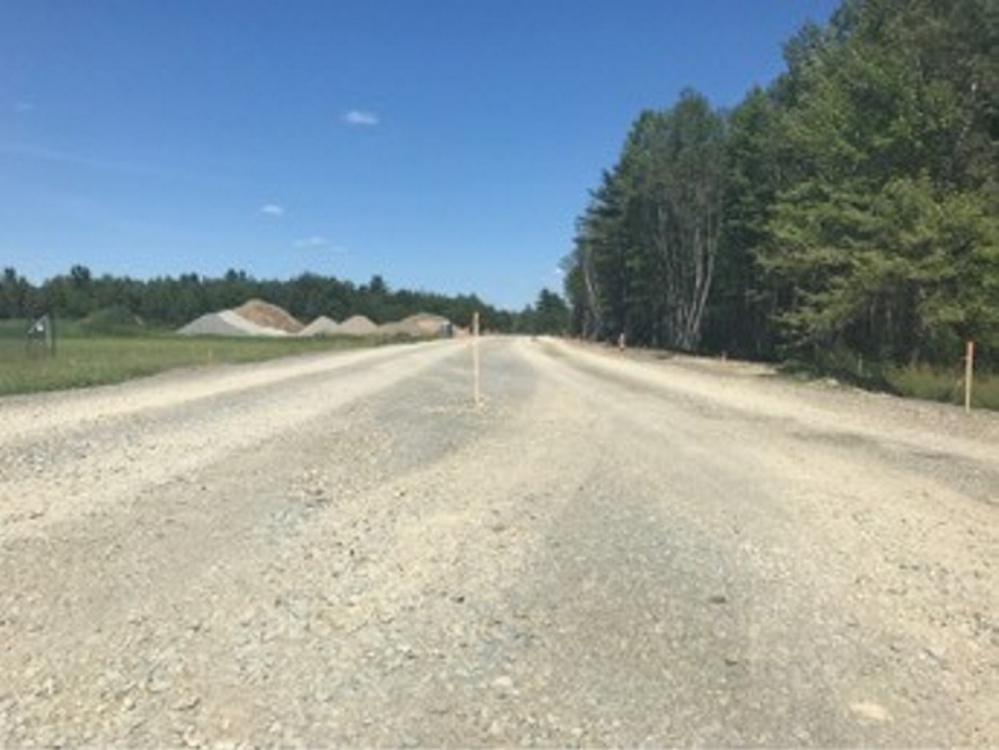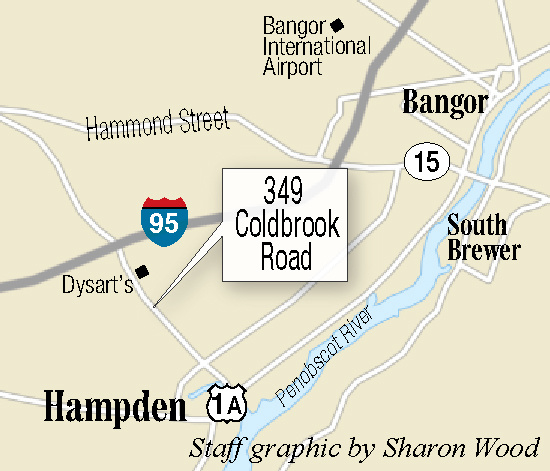ORONO — The Fiberight waste-to-energy plant under construction in Hampden might start accepting trash on schedule next year for more than 100 Maine communities, but it might not be able to process biofuels immediately, and waste might need to be shipped to a landfill temporarily.
Those updates came Wednesday during a meeting of the Municipal Review Committee, a nonprofit organization that represents the trash disposal interests of the Maine communities.
The Fiberight plant, which will separate recyclables and organic waste, converting the organics into biofuels such as biomethane, is projected to open in April 2018, according to a schedule it submitted to the Maine Department of Environmental Protection. But until its biofuels processor is built and complete, a portion of the trash it receives will be shipped to a landfill in Norridgewock.
“Nothing works perfectly at first,” said Fiberight CEO Craig Stuart-Paul, referring to the start of the plant’s processing.
Several central Maine communities have decided the Fiberight project is too risky and already have decided to send their communities’ waste to that landfill.
And officials in at least one community, Brewer, still haven’t decided what to do with their waste contract. Brewer officials have until December to make a decision and are awaiting a vote to see if the Fiberight facility construction starts in earnest before then, review committee member Karen Fussell said.
While Fiberight’s materials recovery facility will be ready to accept waste and separate out the recyclables by April, the other half of the plant, which will take trash and turn it into biofuels, won’t start diverting trash until June, the schedule says.
The plant might not be fully functional — diverting more than half of the trash stream into biofuels — until March 2019, according to the schedule.
Officials from both Fiberight and the review committee are hopeful that the original April start date is possible.
The submitted schedule is a “conservative” estimate and the company hopes to start processing the waste sooner, Stuart-Paul said.
David Madore, director of communications for the Department of Environmental Protection, said the DEP also would like to see the “wet end” of the plant start working sooner rather than later.
The department “concurs with expediting” the materials recovery facility “but continues to work with MRC-Fiberight to identify ways to bring the wet end components on line sooner than currently shown in the schedule,” Madore said in an email.
In an effort to keep everyone focused on the April 1 date, the board of the Municipal Review Committee voted unanimously at its Wednesday meeting to approve an amendment to its agreement with the Maryland-based Fiberight company.
Now the master waste supply agreement says that if the plant isn’t ready to accept at least trash by April 2018, Fiberight is responsible for liquidated damages. If it doesn’t achieve the deadline, the idea is that everyone should have to pay, said George Aronson, the committee’s technical adviser.
If the plant can’t take trash, Fiberight and the committee will transport it to the Crossroads Landfill in Norridgewock. For towns closer to the landfill, the committee would act as their manager and take their tipping fees in exchange for direct transportation.
Any trash that gets accepted at the Fiberight plant is the company’s responsibility, regardless of whether it can use the trash to make a product.
While Greg Lounder, executive director of the review committee, gave a presentation of potential plans for transportation at the April meeting, board members voted only to have the staff get further information on possibilities.
The review committee didn’t discuss transportation costs Wednesday, a fact that seemed to draw concern from board treasurer Sophie Wilson, who is also the town manager in Orono. Wilson also has said previously she’s concerned that Fiberight isn’t licensed yet to be a transfer station, which could be an obstacle to waste being transported to a landfill.
The Municipal Review Committee now sends its trash from 187 towns and cities to the Penobscot Energy Recovery Co. in Orrington. The contract between the committee and PERC ends in April 2018. After researching options, the review committee decided not to renew a contract with PERC and instead to work with Fiberight to build a plant, which it said was the most economically feasible option.
Towns now pay $76 per ton of trash to PERC, which drops to $59 per ton after rebates, but will face tipping fees of $84 to $89 per ton after the contract ends.
In a July newsletter, the committee announced the project is on track to open for the April deadline, despite facing “setbacks and hurdles.”
Construction of the building’s foundation is expected to be complete in late summer or early fall, followed by the plant structure itself in mid-fall.
At a committee board meeting Wednesday morning, Stuart-Paul said Fiberight plans to reach a financial closing on Monday. The amended master waste supply agreement now sets a required deadline of Tuesday.
Both parties blamed the delay on an appeal filed by PERC after the state approved the permits for the project. The appeal was overturned later in Kennebec County Superior Court.
Fiberight plans to close on the first set of funds from Ultra Capital, the lead equity investor in the project, by the Tuesday deadline, which will be followed in October by the release of tax-exempt bonds the company won through the Finance Authority of Maine, or FAME.
Madeline St. Amour — 861-9239
mstamour@centralmaine.com
Twitter: @madelinestamour
Send questions/comments to the editors.






